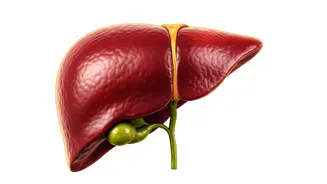Understanding Liver's Role
The liver is a powerhouse of your body, carrying out numerous essential functions. It acts like a filter, removing toxins and waste products from your blood.
It also plays a crucial role in metabolism, processing nutrients from the food you eat and storing energy. Furthermore, the liver produces bile, essential for digestion, and synthesizes proteins vital for various bodily processes. Any damage to the liver can impair these critical functions, leading to a range of health issues. Therefore, taking care of your liver is crucial for overall health and well-being. The liver's ability to function properly impacts the efficiency of other body systems and processes.
Excessive Alcohol Consumption
One of the most significant threats to liver health is excessive alcohol consumption. Alcohol is processed by the liver, and frequent or heavy drinking can overwhelm the liver's capacity, leading to inflammation and damage. Over time, this can result in alcoholic fatty liver disease, alcoholic hepatitis, and eventually, cirrhosis, which is irreversible scarring of the liver. The amount of alcohol considered excessive varies, but regular consumption of more than the recommended limits significantly elevates the risk of liver damage. It's therefore important to be mindful of your alcohol intake and moderate it appropriately to protect your liver. Consider reducing your alcohol intake to give your liver a rest.
Unhealthy Dietary Choices
The food you eat greatly influences your liver's health. Diets high in saturated and trans fats, sugar, and processed foods can contribute to non-alcoholic fatty liver disease (NAFLD). This condition, which is becoming increasingly common, involves fat buildup in the liver that can lead to inflammation and damage. Regularly consuming excessive amounts of these unhealthy foods strains the liver, forcing it to work harder and potentially leading to complications. Adopting a balanced diet rich in fruits, vegetables, whole grains, and lean proteins is key to supporting liver function and preventing fat accumulation. Limiting processed foods and sugary drinks also minimizes the burden on your liver.
Medication Overuse
While medications are essential for treating various health conditions, overuse or misuse can pose a risk to your liver. Many medications are metabolized by the liver, and taking multiple drugs simultaneously, or exceeding recommended dosages, can overwhelm this organ. Acetaminophen, a common pain reliever, is particularly known to cause liver damage if taken in high doses. Always follow your doctor's instructions and be aware of the potential effects of over-the-counter and prescription medications on your liver. It's crucial to inform your doctor about all the medications and supplements you take to avoid harmful interactions. This helps to ensure the liver isn't overworked by drug metabolism.
Exposure to Toxins
The liver works to detoxify the body from harmful substances, making it vulnerable to damage from environmental toxins. Exposure to chemicals and toxins, such as those found in certain cleaning products, pesticides, and industrial pollutants, can put a strain on the liver and contribute to its damage. Inhaling or absorbing these toxins can lead to liver inflammation and potentially more serious conditions. It is important to minimize exposure by using safe cleaning practices, avoiding contact with harmful chemicals, and ensuring proper ventilation in your home and workplace. Protecting yourself from environmental toxins is essential for safeguarding your liver health.
Lack of Exercise
Physical inactivity can contribute to a range of health problems, including liver disease. Regular exercise helps maintain a healthy weight, reduces the risk of NAFLD, and improves overall metabolic health. In contrast, a sedentary lifestyle can increase the risk of obesity and metabolic syndrome, both of which are risk factors for liver damage. Aim for at least 150 minutes of moderate-intensity exercise or 75 minutes of vigorous-intensity exercise per week. This simple habit can contribute to better overall health and can have a positive impact on the liver by keeping it in a healthier state. Regular exercise is an important preventative measure.
Unsafe Practices
Certain unsafe practices can increase your risk of contracting hepatitis viruses, which can cause severe liver damage. Sharing needles or having unprotected sex with multiple partners can expose you to hepatitis B and C. These infections can lead to chronic liver disease, cirrhosis, and liver cancer. Practicing safe sex, avoiding illicit drug use, and getting vaccinated against hepatitis B are important protective measures. Be careful when getting tattoos or piercings, as these procedures can sometimes spread hepatitis viruses. Prioritizing safe practices minimizes risk of these infections and protects liver health.

















